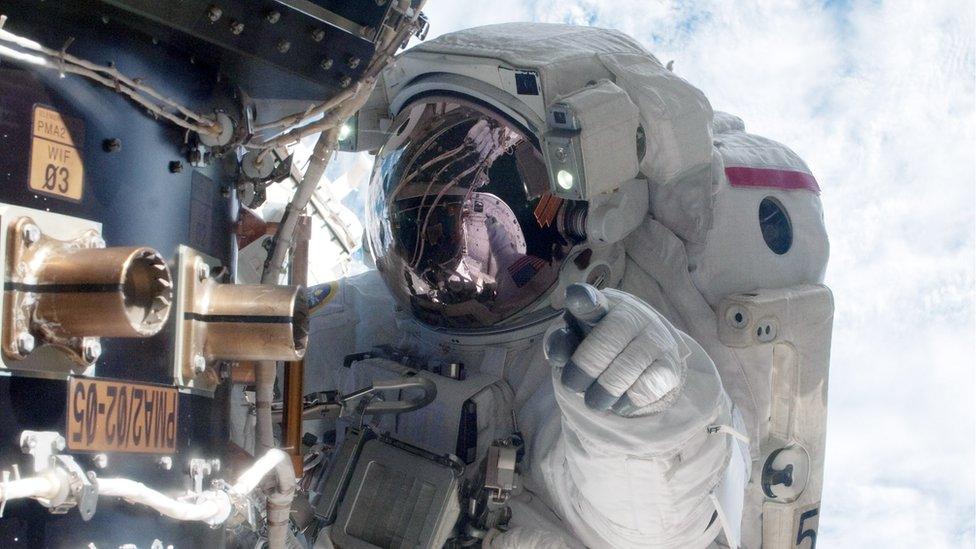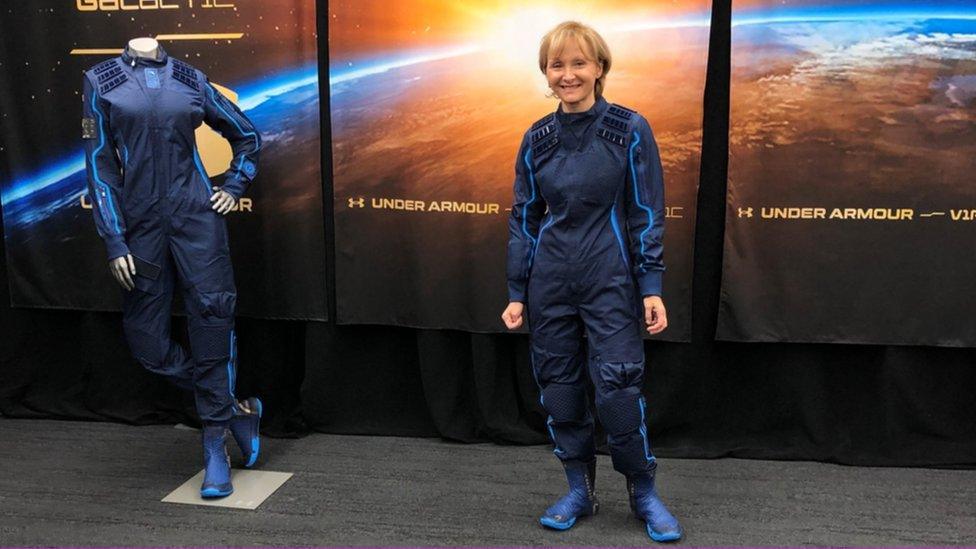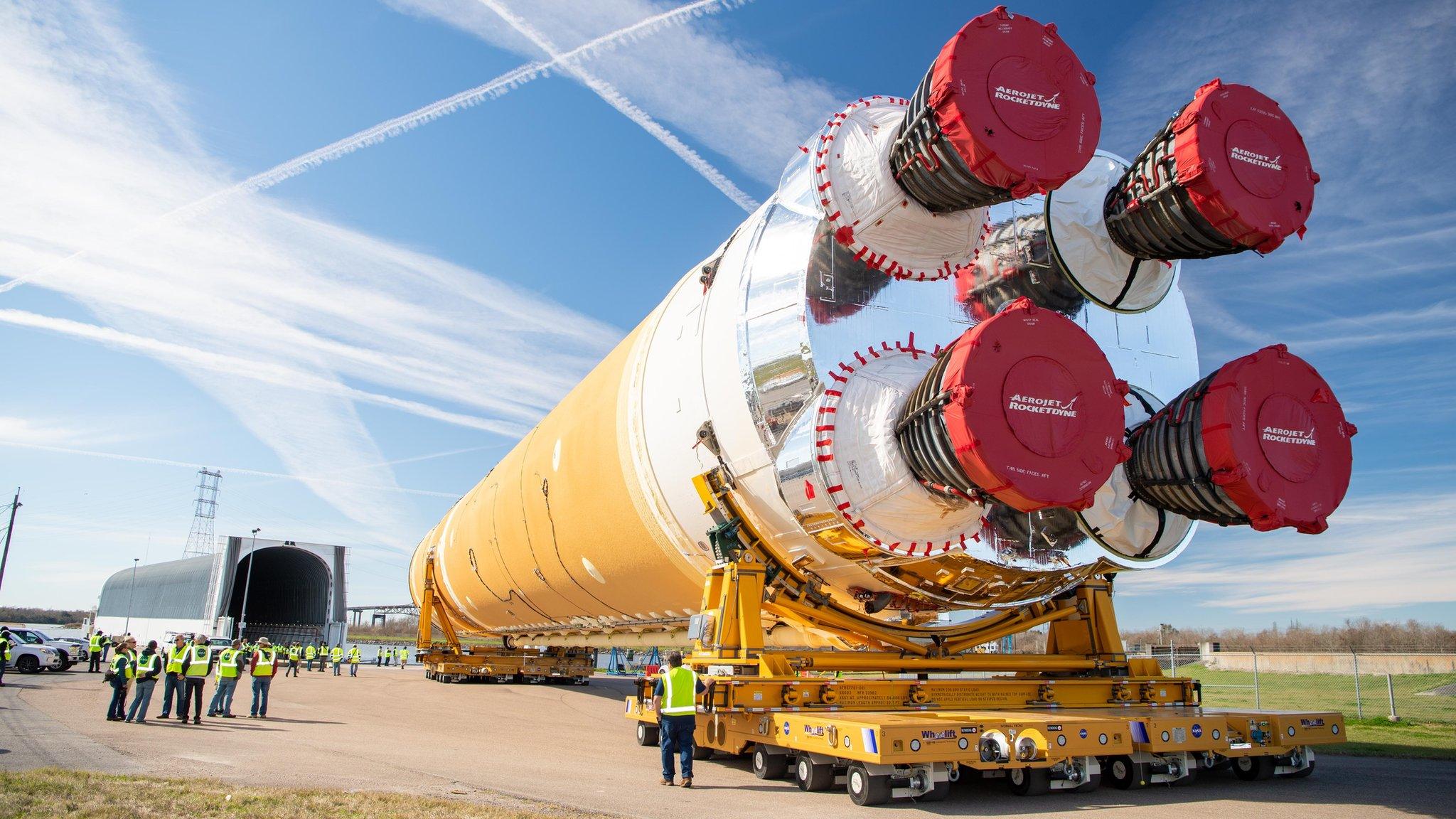Wanted: New astronauts for Nasa Moon mission
- Published

Do you have what it takes to become a Nasa astronaut?
Going into space is a dream shared by children and adults around the world.
Although humans have not stepped foot on the Moon in almost half a century, Nasa hopes to change this. It plans to land the first woman - and the next man - on the lunar surface by 2024.
And now the US space agency is looking for candidates to take part in its future missions.
So with applications opening from 2 to 31 March, what does it take to become an astronaut?
Nationality matters
Since the 1960s, Nasa has selected 350 candidates to train as astronauts, with 48 currently in the active astronaut corps.
But as it is a US federal agency, the first requirement to join Nasa is American citizenship, external, although dual nationals are also eligible to apply.
Allow X content?
This article contains content provided by X. We ask for your permission before anything is loaded, as they may be using cookies and other technologies. You may want to read X’s cookie policy, external and privacy policy, external before accepting. To view this content choose ‘accept and continue’.

This rule has not put everyone off: late British astronaut Piers Sellers left the UK and became a US citizen as part of his dream to become an astronaut, and later flew on three space shuttle missions.
A science background is another key requirement. New recruits are expected to hold a master's degree in a science or maths subject, including engineering, biological science, physical science, computer science, or mathematics.
Qualified medical doctors or people who have completed a nationally recognised test pilot programme may also apply.
And education alone is not enough: two years of related professional experience, or a minimum of 1,000 hours of flying time as lead pilot in a jet aircraft, are also required.
What happens next?
After completing an online application, candidates who make it through to the next stage must pass a physical examination.
Record-breaking astronaut Christina Koch: 'Do what scares you'
For those who are selected, becoming an astronaut candidate means a further two years of training and evaluation.
During this time, candidates take courses in military water survival, technical skills, robotics training and Russian language.
People who do not successfully pass the training period may still be selected for different roles within Nasa, the agency says.
What if I cannot apply?
If you are not eligible to work for Nasa, there are other opportunities to travel into space.
While 151 of the 239 astronauts to have spent time on the International Space Station have been US nationals, dozens of others from across the world have also travelled there.

Do you have what it takes to become a Nasa astronaut?

And if you cannot spare the time to complete Nasa's training and money is no object, Virgin Galactic is due to become the first private company to take tourists into space later this year.
- Published12 January 2020

- Published9 January 2020
